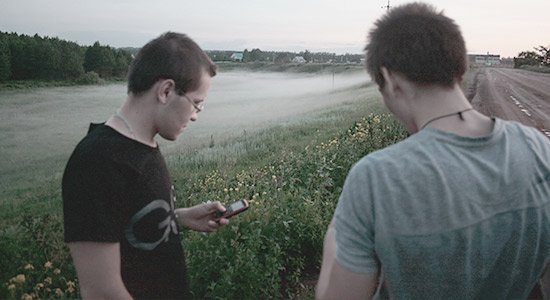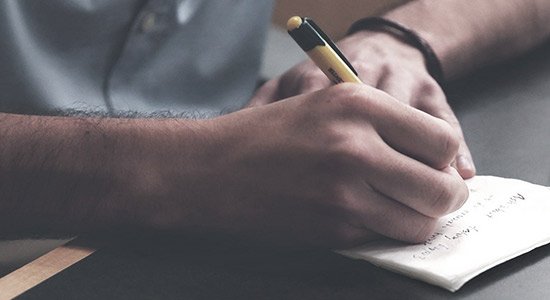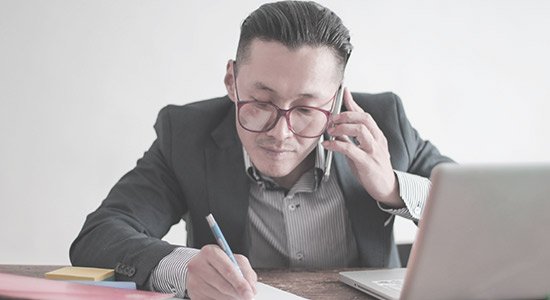You’ve just been involved in a car accident—what steps should you take next to ensure your safety and protect your rights?
Knowing what to do after a car accident can be challenging, especially if it’s your first experience with such an incident. The aftermath of an auto accident is often overwhelming and confusing, but don’t worry! We consulted with car accident experts, and they share the top 10 important steps you should take immediately after a car crash.
Check for injuries.
Check yourself and your passengers for injuries, even if you don’t think anything is wrong. If someone in the car with you has sustained any injuries or appears injured, call 911 immediately. Call an ambulance to get them checked out at a hospital right away!
Additionally, remember that individuals who were not wearing a seatbelt during a car accident are at higher risk for serious internal injuries, even if there are no visible signs on their body. Common symptoms of internal injuries can include confusion, loss of consciousness, vomiting blood or bile (which may signal internal bleeding in the digestive tract), and an unsteady gait that could result from injuries to the legs or ankles. Always watch for these warning signs after a vehicle collision.
Call an ambulance.

If you’re unsure whether to call an ambulance or you’ve already contacted one, it’s always best to err on the side of caution and have someone taken in for medical care. Even if they don’t appear injured now, injuries can sometimes become apparent later (even days after), so be safe rather than sorry by calling 911!
Don’t drink or eat.
Finally, ensure that no one smokes or eats/drinks anything until emergency services arrive at your location – these could cause further injury upon inhalation or ingestion. If possible, move everyone away from the car (especially if it is smoking) since there may still be a risk of fire nearby.
If another individual was involved in the accident, ensure they receive prompt medical attention if they have sustained any injuries.
Wait before moving cars.
Remember: Do NOT move any cars until all parties have ensured no injuries are present at the scene! Doing this could lead to further damage upon moving a vehicle/risking collision with another oncoming vehicle. It’s better to wait for emergency services (i.e., ambulance) before having anyone moved from their current position – especially if someone is bleeding profusely or appears dazed. Also, do NOT move any debris off of the road until this is taken care of as well – it might be necessary for police to take a look at later on!
Call the police.
Call the police to file an accident report. The officer will determine if there is a need for further investigation or if everyone involved has seemingly sustained only minor injuries (i.e., scrapes, and bruises). If it’s determined that no one needs immediate medical attention and you were able to exchange information with all parties in this car crash, then emergency services may not be needed at the scene after all.
Get a copy of the report.
Ensure that you get a copy of the report for your records and tell the officer if anyone was injured in this accident. If you don’t have all of their information or know what hospital they will be taken to for treatment, you will need that from one of them before leaving.
Make sure to check whether any passengers in your vehicle need a police report as well, and file one for them if they do.
Remember: If there were injuries involved or either party is not cooperating with you/not willing to exchange information, emergency services will be needed at the scene! Also, ensure that no one leaves before everything has been taken care of (i.e., possible fire suppression/clearing debris from the road).
Minor accidents.
If it is a minor accident and there was no damage to either vehicle involved, then you may be able to exchange information and leave. This depends on the laws of your state, but in most states, it is illegal to leave the scene before exchanging information.
Injuries and/or car damage.
If any injuries were involved in this car crash, everyone must wait for emergency services (i.e., ambulance) before leaving the scene! This is especially true if someone appears dazed or confused after sustaining an injury during the collision – these could be signs of a more severe head/neck injury that needs immediate medical attention!
After a car accident where no one was injured, but the cars were damaged, you should exchange information and file a police report. If possible, move everyone away from the vehicle since there may still be a risk of fire. In this case, it is crucial to call the police. They will come and collect information about both cars involved in the accident. This includes everything from the color of each vehicle to license plate numbers.
Use of police report.
The police report can be used later on when you are trying to negotiate with insurance companies or deal with any legal issues that might arise after your crash.
Reporting the accident will help you obtain all information about other drivers involved in your car crash and their insurance companies as well.
If the accident is serious, then you should get a copy of the police report. This can be very beneficial if your car insurance company needs it later on or if you need to deal with any legal issues that might arise after the crash itself.
Getting this information can help you find out more about what happened during your car accident.
Contact a lawyer for advice about whether to file a lawsuit against the other driver.
It’s always best to speak with a lawyer before filing an official claim against another party involved in a car accident. Even if you are unsure whether or not to get legal advice after getting into an accident, it is still helpful for everyone involved that all parties contact lawyers before contacting insurance companies to know what their next steps should be.

Often, people don’t think about contacting a lawyer right away, but this can give them peace of mind about their legal rights and help them determine the best course of action for filing claims.
If the other person was at fault for your accident, it is best to find a lawyer who will help you get compensation from them and not their insurance company.
Finding out if another driver involved in an accident with you was negligent or not will determine whether or not there are any legal solutions available for getting compensated after an accident. This decision should be made carefully by speaking with a professional who can advise on what might happen next, depending on how things shake out!
Don’t wait to speak to a lawyer.
Talking about these options early on before filing claims helps prevent conflicts later on when more people become involved. The sooner you speak to a lawyer after getting into a car crash, the better chance you have at protecting your interests moving forward – especially when trying to file insurance claims against someone else!
Depending upon which state you live in, contacting lawyers right away may not be necessary, and you might only need to speak with an insurance company for more information.
You may want to contact a lawyer before filing any claims with your insurance company. Their legal expertise can be helpful in these situations, especially if there is no clear idea of who was at fault for the accident that occurred between you and another vehicle on the road.
Contact your insurance company as soon as possible.
You should contact your insurance company immediately after the car accident to inform them about what has happened. This helps to ensure that your vehicle is adequately covered. Your insurance representative can also answer any questions that you may have.
They can tell you if your insurance will cover the damage that was done to both vehicles.
Your insurance company may be able to give you advice on the next steps that need to be taken after this accident has occurred.
Exchange contact information with any witnesses, drivers, or passengers involved in the accident.

It’s important to get contact information from any witnesses or passengers involved in the car crash. Not only will this help you if you need it later on, but sometimes these people can be used as references when dealing with insurance companies after your accident.
If there are no injuries and both cars have minor damage, exchanging information after a car accident is unnecessary. You should still exchange information with other drivers if possible, but this might be different depending on the laws in your state.
If you can’t contact the other party, then using a police report is your best bet. This will help to ensure that insurance companies have all of the necessary information if anything should arise later on.
Do not admit fault.
It’s important not to admit fault after a car accident. Even if you feel that it was your mistake, this should be discussed later on with the other party involved in the collision.
Accidents happen every day – even when people are being cautious while driving! Sometimes roads can get slick or slippery due to rain, and drivers need to make sure they slow down accordingly.
When two cars collide at no one’s fault, then it is essential never to admit guilt.
These types of car accidents can be referred to as “no-fault” collisions, and usually, both insurance companies will split the total cost evenly between them, but this depends on your state’s laws!
Even if you feel like the other driver was at fault, it is best not to say this aloud or admit it during recorded statements.
The other driver might try to convince you otherwise, which can be helpful for insurance purposes if there is no clear idea of who was at fault.
Take photos of all visible damage to your car and any other cars involved in the accident.
It’s a good idea to take photographs of the car before driving it after a collision. Even if your car looks fine, you might have minor damage that the other driver doesn’t know about.
If there are no injuries or significant damages to your vehicle, taking photos of the accident scene is unnecessary right after a collision occurs.
However, even though it may look like nothing happened on the outside, there can be hidden damage under the hood! Sometimes these issues aren’t caught until they’re already too far gone, which often leads to more costly repairs in some cases down the road.
Before driving.
Taking pictures before driving away will help protect you from any future claims made by drivers involved in accidents with you earlier; make sure they don’t try bailing out at their convenience later on!
Photos are helpful when filing claims with either insurance company because they show what was damaged or broken during an accident. This is especially important if you have to file an official claim for damages that weren’t entirely covered by your policy (or were not fully paid out).
Taking photos after the accident.
Sometimes people forget about taking photos immediately after their accident occurs, which means they might miss valuable information on how extensive the damage is! Do yourself and everyone else involved in the crash a favor and take some before-and-after photos to ensure you are protected in the future.
Write down everything you remember about what happened before and after the accident.
What you remember about the car crash is important, so it’s best to write down all of these details right away.
The weather conditions can help determine what happened during an accident, especially when no witnesses are around. Suppose rain or snow was present immediately before your collision with another vehicle. In that case, this might have made roadways slippery and caused a more dangerous environment on the roads than usual.

Writing down everything that you recall after a car crash will help ensure that both parties get their stories straight before filing claims with anyone else (most importantly, their insurance companies).
Document everything that happens in a notebook – including time, date, location, weather conditions, what happened before the accident (if known), vehicle identification numbers (VINs) if possible, traffic signs/lights at intersections, and any witnesses that were present.
Keep a copy of your notes.
Remember to keep a copy of all these notes for yourself and make sure you let your lawyer or insurance company know about the details included in them. This will help ensure everything is covered if either party files an official claim with their insurer.
It’s essential to write down every detail right after it occurs because memories become foggy after time passes! This can lead people to make false claims or accusations against other drivers involved in car accidents (usually without knowing). Don’t take chances when filing claims regarding auto collisions – document everything while it’s still fresh on everyone’s mind!
Writing things out instead of recalling all the information from memory helps prevent misunderstandings between two or more parties involved in a car crash.
Ensure that all parties involved have a clear idea of what happened before filing official claims with their respective insurance companies so there are no discrepancies later on down the road! This will help prevent any possible problems from occurring for everyone involved. They won’t be scrambling to figure things out after an accident happens and provide as much information about what happened before submitting claims.
Report the incident to DMV.
After filing an official claim with your insurance company, it’s important to call the DMV and report any accidents that could affect how you’re allowed to drive legally.
Depending on your state, you might not need to report a car accident under a specific dollar amount (usually $500 or less). However, it’s best to err on the side of caution and call your DMV after an accident happens.
Don’t forget to call your DMV and report a car accident, even if you’re not entirely sure it will affect how you drive. Don’t take the chance of having any problems later because then things might get messy!
To make sure that you are driving legally in your state, it’s best to report any accidents involving cars or other vehicles on the road right away.
This will help prevent problems later down the line when determining whether or not someone is allowed to continue operating their vehicle according to legal regulations for drivers in their area.
It’s essential to follow up on any unresolved issues related to a car accident that you were involved in after about two weeks have passed.

This is necessary because sometimes insurance companies need time (usually around 30 days) before making decisions regarding claims submitted by drivers for accidents involving vehicles.
Make sure not to wait too long before following up with your insurance company if there are still outstanding concerns or questions – instead, try reaching out within the first month or so of an accident happening!
This will help ensure that all parties can resolve their differences and move forward without future problems arising down the line when filing official claims.
Conclusion
As you read this article, we hope it has helped provide some helpful information on what steps to take after a car accident.
Of course, each situation is unique, and many other things could be done based on the specific circumstances of your particular case.
You should always consult with an experienced personal injury lawyer if you have any questions or concerns about proceeding following an auto accident, even if nothing more than property damage was involved. We would love to hear from you!
Have these 10 tips been helpful? What else do you think people need to know to get through a collision without worry?

Lenny Terra is the founder & editor-in-chief. He’s a life coach, software engineer, freelance writer, and has a diploma in Modern Applied Psychology. Lenny has a passion for great living & beautiful design. He is married and is the father of two beautiful girls. His life’s mission is to help people improve their lives, become happier and more productive. This blog is his contribution to that goal and to the empowerment of his readers. Lenny and his family live in Texas with their two dogs.